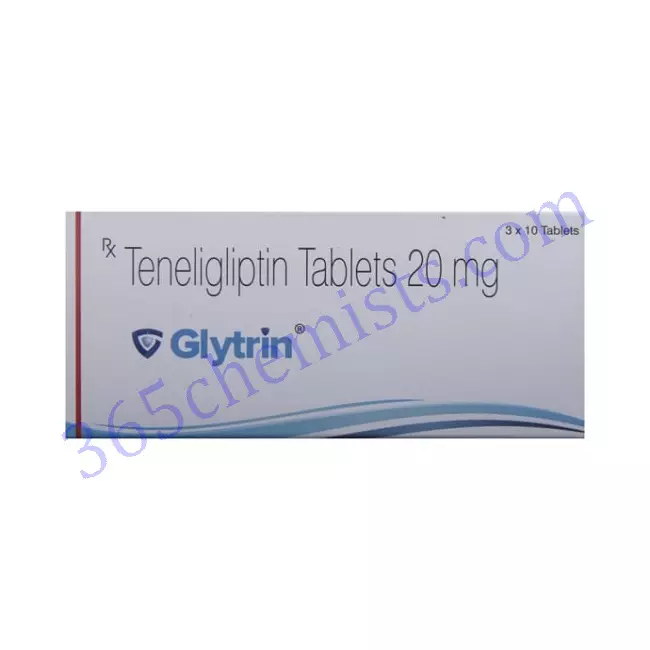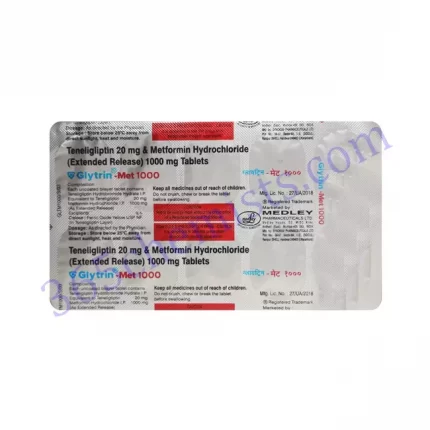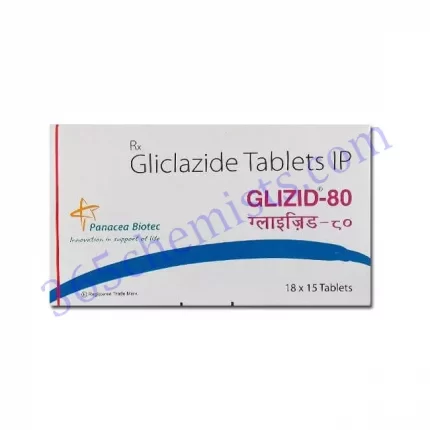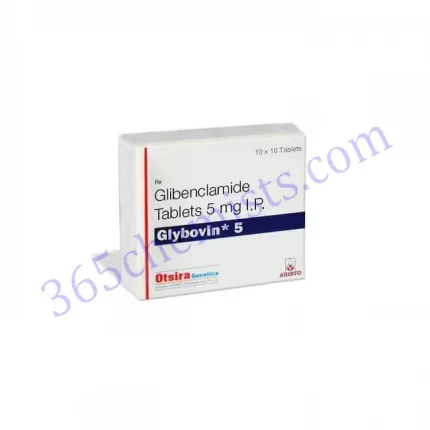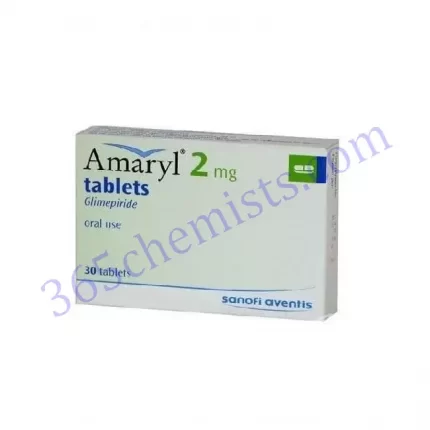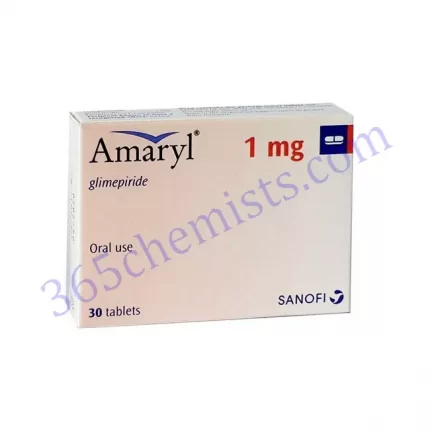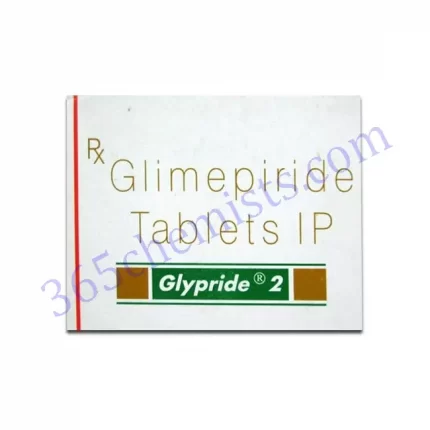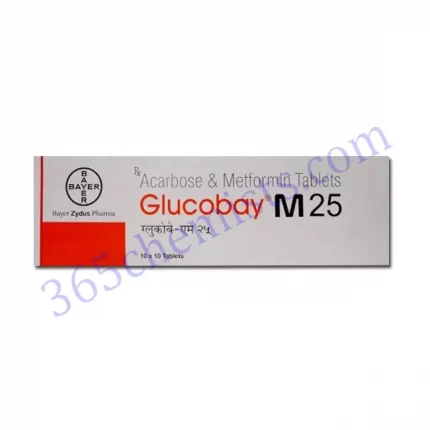Glytrin 20mg Tablet (Teneligliptin): Enhancing Diabetes Management
Teneligliptin is a drug that is often used for the control of diabetes mellitus type 2, and the Glytrin 20mg Tablet includes this active component. The purpose of this description is to offer helpful information about Glytrin 20mg Tablet, including its applications, recommended dosage, possible adverse effects, and safety considerations.
Understanding Teneligliptin and Its Mechanism of Action
Teneligliptin is an inhibitor of dipeptidyl peptidase-4 (also known as DPP-4). It does this by blocking the enzyme that is responsible for the breakdown of incretin hormones like glucagon-like peptide-1 (GLP-1) and glucose-dependent insulinotropic peptide (GIP). This is how it works. Teneligliptin improves insulin production and suppresses glucagon release, resulting to improved management of blood sugar levels. This effect is achieved through teneligliptin’s ability to extend the activity of both hormones.
Uses of Glytrin 20mg Tablet
The primary application for the Glytrin 20mg Tablet is in the management of diabetes mellitus type 2. Individuals who are unable to achieve appropriate blood sugar control with lifestyle modifications alone are often prescribed it in addition to a nutritious diet and regular exercise in order to enhance glycemic control. This is done in an effort to improve glycemic control. The Glytrin 20mg Tablet offers a solution that is both effective and convenient for the management of diabetes.
Dosage and Administration
It is possible for the recommended dosage of Glytrin 20mg Tablet to change based on an individual’s unique requirements and response to treatment. It is critical that you carefully adhere to the directions given to you by your healthcare practitioner or the dosage that is specified on the packaging of your medication. In most cases, one pill should be taken orally once daily, either with or without meals. This is the dose that is suggested.
Taking the Glytrin 20mg Tablet on a consistent basis and at the same time each day will help you achieve the best possible outcomes. It is imperative that you speak with a qualified medical practitioner prior to skipping doses or making any adjustments to the dosage that has been prescribed for you.
Related Product
Glytrin 20mg Tablet
Glytrin Met 500/20mg Tablet
Glytrin Met 1000/20mg Tablet
Precautions and Warnings
Before beginning therapy with Glytrin 20mg Tablet, it is important that you discuss any preexisting medical problems, allergies, and drugs that you are already taking with your attending physician. Your healthcare professional will be able to evaluate the appropriateness and safety of this drug for you with the use of this information.
It is possible that patients suffering from certain medical disorders should not take the Glytrin 20mg Tablet. In order to assess whether or not the Glytrin 20mg Tablet is the right medication for you, your healthcare professional will examine both your medical history and your present state of health.
Possible Side Effects
It is possible that the Glytrin 20mg Tablet, like any other medicine, will cause certain negative effects in some people. Some examples of common adverse effects include:
- In the beginning phases of treatment, some people could have headaches that range from mild to moderate intensity. Headaches can be caused by a number of factors. These headaches are typically only temporary and disappear without treatment on their own.
- Nasopharyngitis, also known as the common cold, is a side effect that has been observed in some people who use the diabetes medication teneligliptin. It is a disorder that tends to clear up on its own and does not necessarily require any kind of therapy.
- Hypoglycemia is uncommon, however taking Glytrin 20mg Tablet along with other medications that lower blood sugar can raise the risk of developing hypoglycemia, often known as low blood sugar. Monitoring your blood sugar levels on a consistent basis and being aware of the signs and symptoms of hypoglycemia are both essential for ensuring that your therapy continues to be both safe and effective.
- Notify your healthcare practitioner immediately if you have any side effects that are unusual or continue for an extended period of time so that they can provide further examination and direction.
The Benefits of Glytrin 20mg Tablet
The use of the Glytrin 20mg Tablet (Teneligliptin) has been shown to have a number of positive effects in the management of type 2 diabetes mellitus. These benefits include the following:
- Improved Management of Blood Sugar Teneligliptin’s ability to raise insulin production while simultaneously lowering glucagon levels contributes to improved management of blood sugar. This results in lower levels of blood sugar both while fasting and after eating, which ultimately leads to improved glycemic control.
- Convenient Once-Daily Dosage Because the Glytrin 20mg Tablet only needs to be taken orally once daily, this medication is an excellent choice for people who lead active and hectic lives. The once-daily dose strategy helps maintain stable blood sugar levels throughout the day and assures that the patient will adhere consistently to the treatment plan.
- Glytrin 20 mg Tablet is Generally Well-Tolerated and Has a Low Incidence of Side Effects Overall, Glytrin 20 mg Tablet is Well-Tolerated. Headaches and nasopharyngitis are two examples of typical adverse reactions that are typically moderate and short-lived. This improves the patient’s ability to comply with the medication and their level of happiness with it.
- Compatibility with Other Diabetes Medications The Glytrin 20mg Tablet can be taken by itself or in conjunction with other medications that lower blood sugar, such as metformin or sulfonylureas. Because it is compatible with a wide variety of treatment protocols, it enables individualised treatment that is tailored to the individual requirements of each patient.
Precautions and Considerations
Despite the fact that the Glytrin 20mg Tablet provides a substantial number of advantages for the control of diabetes, it is essential to keep in mind the following precautions and factors:
- Individualised Treatment Because the management of diabetes requires a great deal of personalization, the Glytrin 20 mg Tablet might not be appropriate for everyone. In order to establish whether or not Glytrin 20mg Tablet is the best option for you, your healthcare practitioner will evaluate your medical history, the drugs you are currently taking, and any other relevant considerations.
- Hypoglycemia Risk: Just like any other prescription that lowers blood sugar, Glytrin 20mg Tablet may raise the risk of hypoglycemia, particularly when combined with other medications that also lower blood sugar. Monitoring your blood sugar levels on a consistent basis and being aware of the signs and symptoms of hypoglycemia are both extremely important for ensuring that your therapy continues to be both safe and effective.
- Other Medical problems It is important that you inform your healthcare practitioner about any other medical problems that you have, since some conditions may affect whether or not Glytrin 20mg Tablet is appropriate for you or may necessitate adjustments to your dosage. Pancreatitis, liver disease, and renal disease are some of the conditions that fall within this category.
Conclusion
Teneligliptin, which is the active ingredient in the Glytrin 20 mg Tablet, is an efficient drug for the control of diabetes type 2. Increased insulin secretion and decreased glucagon release contribute to improved management of blood sugar levels brought on by this compound’s DPP-4-inhibiting activity. For the best possible outcomes, be sure to take the medication in the correct quantity, keep a close eye on your blood sugar levels, and maintain open communication with your doctor. Tablets of Glytrin 20 mg can be an important and helpful component of a treatment strategy for diabetes, as they can assist patients in achieving improved glucose control and an overall improvement in their health.

